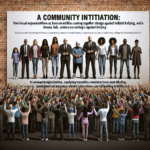
The Essential Role of Behavioral Psychology in Shaping Organizational Resilience and Adaptability
Introduction
In an era characterized by rapid change and uncertainty, organizations face unprecedented challenges that demand resilience and adaptability. The role of behavioral psychology in shaping organizational resilience and adaptability has never been more critical. Understanding how human behavior influences organizational dynamics is essential for crafting strategies that promote agility in the face of adversity. This in-depth exploration will delve into how behavioral psychology can be harnessed to foster environments where organizations not only survive but thrive.
Understanding Organizational Resilience
What is Organizational Resilience?
Organizational resilience refers to an entity’s ability to anticipate, prepare for, respond to, and recover from disruptive events. This concept goes beyond mere survival; it’s about emerging from challenges stronger and more capable. Behavioral psychology plays a pivotal role in cultivating the mindset and behaviors necessary for cultivating resilience.
The Psychological Foundations of Resilience
Resilience is not merely a trait; it can be developed through a better understanding of human behavior. Key psychological principles that support resilience include:
- Cognitive Flexibility: The ability to adapt one’s thinking and behavior when faced with new information or changing circumstances.
- Emotional Regulation: Managing one’s emotions to remain focused and effective in crisis situations.
- Social Support Systems: Building strong networks that provide emotional and practical support.
The Role of Behavioral Psychology in Shaping Organizational Practices
Leveraging Behavioral Insights for Change
Behavioral psychology informs organizations on how to implement change effectively. By understanding the psyche of employees and stakeholders, leaders can design interventions that enhance engagement and productivity.
Case Study 1: The Google Project Aristotle
Google’s Project Aristotle aimed to identify what makes a team successful. Through extensive research, the company discovered that psychological safety plays a crucial role. Teams that felt safe to express ideas, ask questions, and even fail without judgment were found to be more innovative and resilient. This case illustrates the essential role of behavioral psychology in shaping organizational culture.
Building a Culture of Adaptability
Enhancing Learning Agility
To foster organizational resilience, promoting a culture of learning is vital. Behavioral psychology principles can help create environments that encourage continuous learning and adaptability.
- Encouraging Experimentation: Allowing employees to test new ideas without fear of failure fosters creativity.
- Feedback Loops: Implementing regular feedback mechanisms helps teams learn and adapt from their experiences.
Case Study 2: 3M’s Innovation Culture
3M, known for its innovative products, encourages a culture of experimentation. The company’s "15% rule" allows employees to spend a portion of their time on personal projects. This autonomy, grounded in behavioral psychology, leads to greater creativity and resilience within the organization.
Instilling a Resilient Mindset
Mindfulness and Stress Management
Mindfulness techniques and stress management strategies informed by behavioral psychology can significantly impact organizational resilience. These practices enhance emotional regulation and cognitive flexibility among employees.
- Mindfulness Training: Programs that help employees develop mindfulness can reduce stress and improve focus.
- Work-life Balance: Encouraging practices that promote a healthy work-life balance leads to greater overall well-being in the workforce.
Case Study 3: Johnson & Johnson
Johnson & Johnson implemented mindfulness training across its global workforce. By fostering a culture of mindfulness, the company has reported increased employee resilience and adaptability, especially during challenging times.
Implementing Behavioral Strategies for Organizational Resilience
Actionable Strategies for Leaders
Leaders play a crucial role in creating an environment conducive to resilience. Here are some actionable strategies:
- Encourage Open Communication: Foster a culture where ideas and concerns can be freely expressed.
- Recognize and Reward Adaptability: Highlight and reward innovative problem-solving and adaptability in employees.
- Invest in Training: Regularly provide training opportunities that equip employees with coping strategies and resilience-building skills.
Tools and Frameworks
Utilizing tools informed by behavioral psychology can significantly improve organizational resilience. Here are a few key methodologies:
| Tool/Framework | Description |
|---|---|
| Behavioral Nudges | Small changes in the environment that can lead to significant shifts in behavior. |
| Growth Mindset Training | Workshops that promote the belief that abilities can be developed through dedication and hard work. |
| Crisis Simulation Exercises | Practical training that prepares teams for potential crises, enhancing readiness and adaptability. |
Conclusion
The importance of behavioral psychology in shaping organizational resilience and adaptability cannot be overstated. By understanding and leveraging psychological principles, leaders can craft strategies that not only prepare their organizations for uncertainty but enable them to grow stronger in the face of challenges.
As we navigate an ever-evolving landscape filled with disruption, organizations that prioritize behavioral psychology will foster environments where resilience thrives. Take actionable steps today to integrate these insights into your organizational practices, creating a culture ready to adapt and succeed.
FAQs
1. What is organizational resilience?
Organizational resilience refers to a company’s ability to anticipate, prepare for, respond to, and recover from disruptive events while emerging stronger.
2. How does behavioral psychology contribute to organizational adaptability?
Behavioral psychology helps organizations understand human behavior, enabling them to design interventions that promote engagement, learning, and resilience.
3. Can resilience be developed in employees?
Yes, resilience can be nurtured through training programs focused on emotional regulation, cognitive flexibility, and social support.
4. What role does leadership play in fostering resilience?
Leaders create the environment for resilience by promoting open communication, encouraging innovation, and supporting employee well-being.
5. What are some effective tools for enhancing organizational resilience?
Tools like behavioral nudges, growth mindset training, and crisis simulation exercises can significantly improve an organization’s resilience and adaptability.
By embracing the pivotal role of behavioral psychology in shaping organizational resilience and adaptability, companies can cultivate environments that not only withstand challenges but also thrive amid them.













